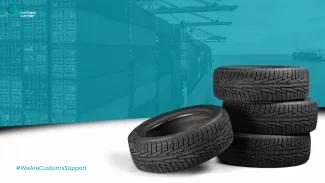The automotive industry is more than just cars and other vehicles
Although cars are sold internationally, this is a very small part of how the automotive industry works with regards to customs. The largest parts of what we do at Customs Support are before and after the assembly of the vehicle.
Customs is important during manufacturing, as the cost of every component can be affected because of the HS classification, preferential origin, or with the application of an inward processing procedure.
The same is true for the international sale of spare parts, but different rules can also be applied depending on which stage of assembly the spare components are at and the corresponding HS code changes.
All told, a single automotive company could have 1000s of variables to contend with, and it’s not easy to do well. Without an experienced customs consultant working to optimise your supply chain, the little costs can soon add up for you and for your customers.
The problem with automotive supply chains
One of the common issues that we find when we begin to work with a new automotive client is that they are restricted by their distribution company.
Whilst the logistics and transport operation are taken care of, there is a lack of in-depth customs procedure knowledge which prevents you from saving money with efficient duty management.
We also see instances where part of a procedure has been applied, but this is only in one country or it has been applied in another country where there are better options.
Other times, a potential client can have multiple sites but different operating and inventory systems that are not integrated. Digitalisation is important with the automotive industry, as it saves your business time, money, and risk across a multitude of considerations.
The automotive industry and customs requirements are always evolving with regards to what’s fashionable in the market, the latest technology, and – more recently – the tougher standards set by governments because of climate change.
Electronic vehicle assembly is different to combustion engines, yet what we have seen is that automotive logistics providers are trying to fit it into the same system. This isn’t because they are resistant to change; it’s due to the lack of in-house specialised knowledge.
Computer chip specifications, API requirements, and other variables at both a country- and EU-level are all things to consider, but this is difficult to know when you are only looking at an HS code.
With companies trying to adapt, it’s easy for you to lose track of what’s going on. Imagine hundreds of different parts arriving at multiple customs warehouses through various ports, each with their own set of rules. You need all that information to make decisions.
How Customs Support helps automotive companies
To get the most out of your supply chain, it takes more than in-depth customs knowledge of the automotive sector. It requires a partner who leverages a digital-first approach to customs to enable you to adapt to the ever-changing landscape of customs.
It’s also important that they understand how the automotive industry is growing, and how to leverage insights to help you make crucial decisions within a beneficial timeframe.
You also need to be able to respond or create contingencies when planned changes are rescheduled or suspended, such as the amendments to preferential origin for EV vehicles.
The basics
The first thing we do when we meet with you is a quick scan, looking to ascertain what you are trading and where you are trading from and to. That creates a risk profile and master data sheet that allows us to implement an action plan.
If you do not have a master data sheet, the creation of one is a critical task for us to complete. Having an overview of 4/5000 SKUs across multiple warehouses is not an easy thing to manage, especially when they can have overlapping considerations and binding tariff protocols.
Furthermore, we help you implement functions that help to keep this data complete and up to date, such as EDI connections and training for staff.
We take care of answering all the important questions surrounding classification and origin, whether it’s obtaining the correct data from suppliers or ensuring that you have the correct export origin statements on your sales documentation.
Taking you to the next level
From a good foundation, we can begin to look at leveraging specialised processes such as Inward Processing Relief (IPR) and bonded warehousing administration. IPR, in particular, is essential when looking at the automotive industry and customs.
If you haven’t got them already, we will help you to obtain customs permits and also work with you on your AEO certification so that you can take advantage of being a company that authorities trust.
Once we have your processes streamlined and good duty management in place to save you money, we can help you explore growing markets with confidence.
Need advice on the automotive industry and customs?
Customs Support is here for you. Experienced in overseeing multinational supply chains within the sector, we operate customs consultancy and operations in over 13 countries across the EU and UK.
As specialists in the automotive industry and customs, our experts can help you to optimise your processes with IT and training, and leverage customs function that save you money. Contact us today to get started with a quick scan.














